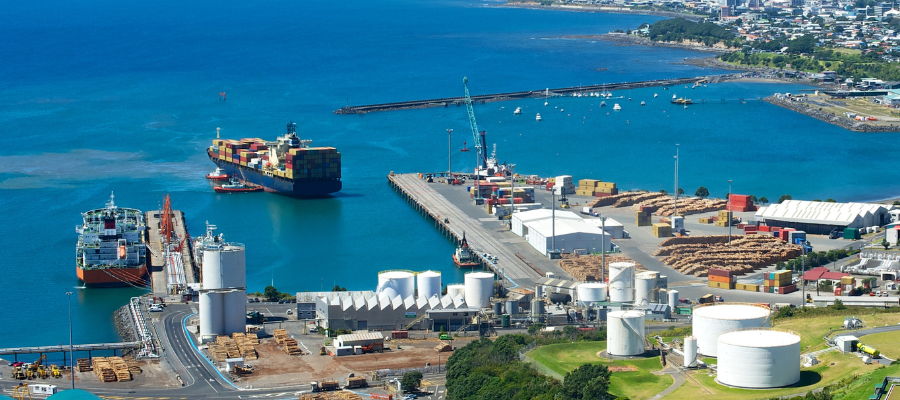🕒 Article read time: 2 minutes
UK launches its first three Freeports

In March 2021, Rishi Sunak MP, then Chancellor of the Exchequer, announced plans to build eight Freeports across England, news which was welcomed by many working in the logistics industry at the time.
Logistics Magazine looks at what a Freeport actually entails, and what opportunities exist for the sector.
WHAT ARE FREEPORTS?
Freeports are secure customs zones located at maritime ports and airports where business can be carried out inside a country’s land border but where different customs rules apply. Promising to unlock new prospects for international trade, economic activity, innovation and efficiency, the sites have the potential to maximise opportunities for rail freight too.
EIGHT SITES CHOSEN
The eight sites chosen to become Freeports in England were East Midlands Airport, Felixstowe and Harwich, the Humber region, the Liverpool City Region, Plymouth, Solent, Thames and Teeside. Freeports can offer businesses relief from duties and import taxes, and ease tax and planning regulations, while reducing administrative burdens and tariff controls. Freeports may also offer simplifications to the normal customs administrative processes on imported goods.
There are Freeport tenders out for Scotland too, plus longer-term plans for Freeports in Wales and Northern Ireland.
THREE PORTS LIVE
The UK’s first three Freeports – Plymouth, Solent, and Teeside – are now fully up and running after receiving final government approval last week (7 December 2022). The Department for Levelling Up, Housing and Communities (DLUHC) has said that the Freeports becoming fully operational marks a major milestone in the government’s mission to level up communities across the country and will help spread opportunity and drive economic growth.
£25 MILLION SEED FUNDING
These three Freeports will now each receive up to £25 million seed funding and potentially tens of millions of pounds in locally retained business rates which can be used to upgrade local infrastructure and stimulate regeneration.
Businesses in Freeports can take advantage of tax incentives to unlock investment and create high-quality jobs in some of the nation’s most overlooked communities. DLUHC expects the first three Freeports to attract millions of pounds in investment and create thousands of high-skilled jobs in the industries of the future, benefitting both local economies and the UK as a whole.
Levelling Up Minister Dehenna Davison said: “Now they are up and running, these Freeports will harness local expertise to grow vital industries and turbocharge our national economy.
“Freeports will generate prosperity and spread opportunity throughout the UK by driving innovation and throwing open our doors to trade with the world.”
Alexandra Herdman, Senior Policy Manager, Logistics UK, said: “We welcome the opportunities that Freeports bring to areas of the UK that could benefit from a much-needed injection of investment and economic growth. While Freeports are not a silver bullet for economic malaise, they can, in the view of Logistics UK, bring major benefits to under-invested areas of the UK and help increase trade and freight volumes for the wider UK economy.”
*www.logistics.org.uk/water
Published On: 15/12/2022 16:00:34

Comments Section
If you are a Logistics UK member login to add comments.